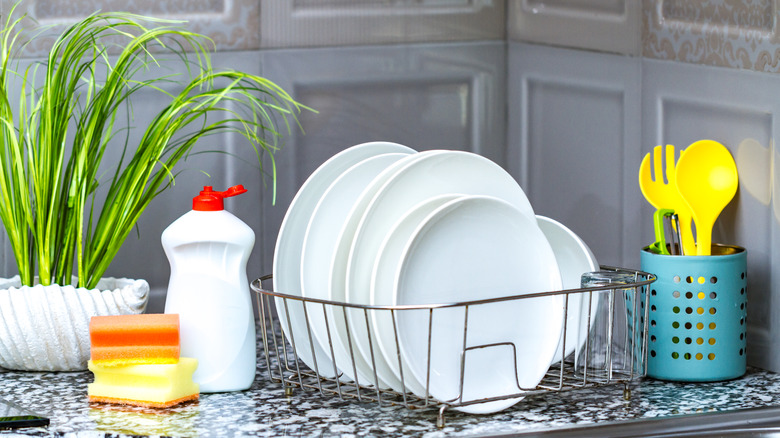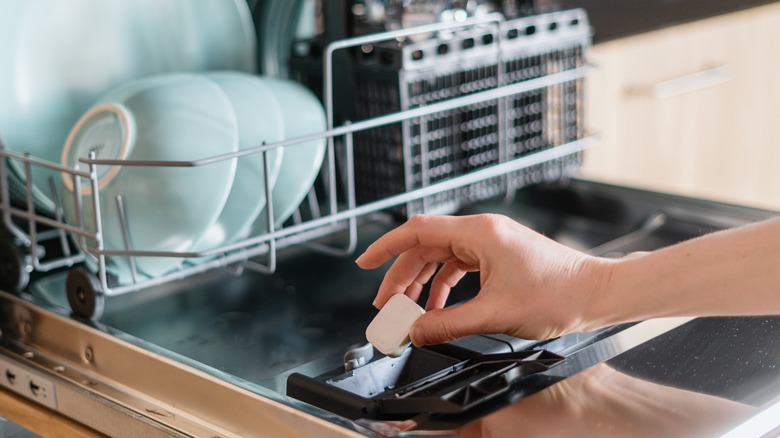The Crucial Reason You Should Never Use Liquid Soap In Your Dishwasher
Have you ever found yourself in a pinch, out of dishwasher detergent or those handy detergent pods from Finish or Cascade, and contemplated using regular dish soap in your dishwasher? It's a common scenario where one might think, "Well, I wash dishes with this soap in the sink. So, why not in the dishwasher?"
However, you should think twice as the two cleaning agents are not interchangeable when it comes to your dishwasher. There is a crucial reason why you should never use liquid soap in your dishwasher: Liquid dish soap causes messy and thick suds that your dishwasher can't handle. Regular dish soap is formulated to create suds when activated with water and works effectively when you manually scrub dishes in a sink. In contrast, dishwashers require a specific type of detergent that doesn't produce these suds but uses specially formulated enzymes to clean your dishes instead. When you fill a dishwasher with regular dish soap, you invite an overflow of thick, frothy suds. These suds can cause significant problems for your dishwasher, which isn't designed to effectively and quickly drain suds. This can cause your dishwasher to malfunction and leave a huge mess for you to clean, with suds spilling all over your kitchen floor. This soapy mess will also make the floor slippery, so you will have to be careful when cleaning it all up.
Enzymes are the suds-free secret behind dishwasher detergents' efficiency
As aforementioned, dishwasher detergents utilize the power of enzymes, highly effective agents in breaking down residual food and grease on utensils, cookware, and serveware. These enzymes act like your stomach acids or like minuscule Pac-Men, "eating away at" food stains and particles, making them easily washable in the dishwasher. This powerful enzymatic action means there's no need for your pre-rinsing or manual scrubbing, nor dealing with soapy suds in the sink first. Hence, it's time to abandon the habit of pre-rinsing your dishes before placing them in the dishwasher. (For dishes with caked-on food, we do recommend you scrape them off and compost the waste first before loading the dish into the dishwasher.)
Hot water and strong water sprays bolster the dishwasher's cleaning process, ensuring an efficient and thorough cleaning. Moreover, dishwashers filter and reuse water during each cycle. So when you run a fully loaded dishwasher, you're conserving more water than if you were to wash an equivalent load of dishes in the sink.
In summary, for the well-being of your dishwasher, your dishes, for the environment, and for your own convenience, always use the right dishwasher detergent and never reach for the dish soap when you're about to start the dishwasher. Your dishwasher and your kitchen floor will appreciate you.

